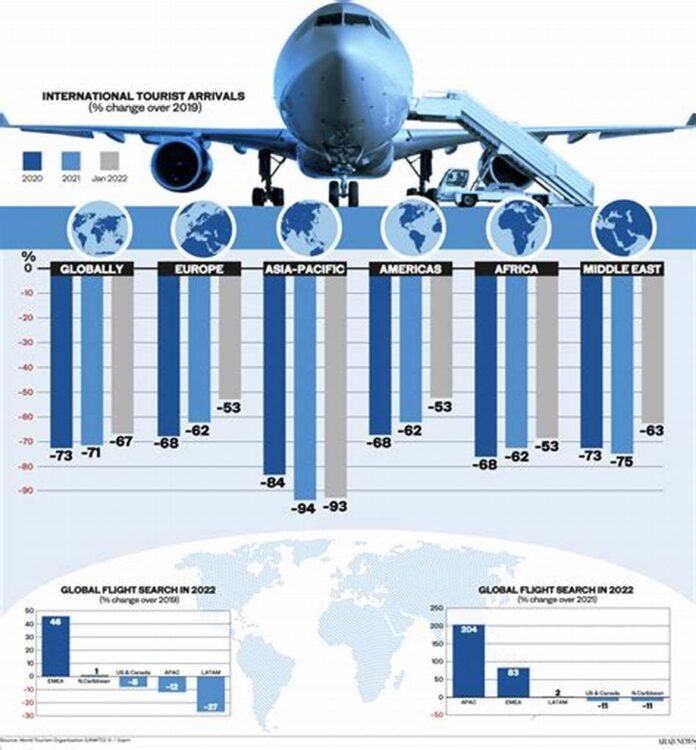Experts: Paucity of Funds Hindering Aircraft Maintenance, May Impair Domestic Air Travel
Aviation experts have raised the concern that paucity of funds is hindering aircraft maintenance, thereby reducing the number of operating aircraft on schedule service due to failure of airlines to pay for maintenance of their aircraft.
It was learnt that capacity has dropped by 70 per cent, as the biggest carrier that hitherto operated about 100 flights a day has reduced its operations to 36 flights and some airports that receive four flights daily now receive one flight or none.
The consequence, it was learnt, is that airports are grossly underutilised, and some routes have been closed because airlines do not have sufficient aircraft to operate such routes. The development has compelled so many air passengers to resort to road travel with attendant security threats and fears.
Also, due to low capacity, travellers that can still afford to pay for air tickets, now scramble for flights, giving room to ground staff of airlines and touts, who dub themselves as protocol workers, to engage in rackets of buying aircraft seats with phony names and when the seats are fully booked they double the fare and sell to those who come to them to assist in getting a ticket.
The illicit engagement has been there over the years but it has gained higher momentum as some desperate travellers are willing to pay any amount of money to get seats in the few flights that operate daily.
The Managing Director of Aero Contractors, Captain Ado Sanusi who spoke to THISDAY exclusively on the issue, said airlines may not meet the demand of the next Christmas season, which is the highest for air travel in Nigeria’s calendar.
According to him, domestic carriers would fail travellers during the period because the capacity may not grow significantly before then and currently airlines are still dropping aircraft that are due for maintenance.
On what will happen to the domestic air travel market subsequently in the coming months, Captain Sanusi said: “Well, to start with now as we speak, all flights are fully booked. So, what does that tell you? This is not even the high season. This tells you that when the high season comes, when the traveling season comes, it will be chaotic.
“First, tickets will be very expensive. People with their moneywill not even find a ticket to fly to their hometown and all that. We don’t see any increase in capacity.In fact, we might see a decrease. Aero Contractors is bringing two more airplanes before Christmas. But that’s Aero. We don’t know whether other airlines are thinking of bringing more airplanes during that period. So, that is where we are this point.”
Industry observers said the grounding of Dana Air last April by the Nigeria Civil Aviation Authority for safety reasons contributed in exacerbating the problem because the airline operates 27 flights a day and at peak periods, and airlifted about 150 passengers per flight, which is about 4,050, which is a capacity that is off the market daily.
The Aero Contractors Managing Director said airlines would still drop more aircraft and the only solution is to make money available to airlines to bring back their aircraft taken out for maintenance overseas.
“So, what we have seen is that those aircraft that are due for checks have been grounded. And operators are not taking them to checks. They are keeping them on ground. Why? This is because of scarcity of dollars and the economic situation in the country, general economic situation in the country. Those aircraft that are also outside, we have not seen them coming back. So we have aircraft in Turkey, aircraft in other parts of Europe still waiting to be paid for their maintenance,” he said.
On how this facility can help domestic airlines by maintaining some of their aircraft locally, Sanusi said the company expanded its maintenance division in order to take in more aircraft for C-checks.
“We are extending our hangar. We want to have the two hangars to be satisfied for C-checks. So that means we can take two aircraft at the same time. We are also in talks with Honeywell. We want to start overhauling of APU that is auxiliary power unit. We are also increasing our capacity from our workshop. So, we are doing so many things. We want to even start landing gear repairs, which is the tyres of the aircraft. We want to see whether we can do an overhaul for them. So we are expanding to cater for the ever-growing demands,” he said.
The Managing Director of Flight and Logistics Solutions Limited, Amos Akpan who had managed airlines in Nigeria in the past, said that it would be difficult for Nigerian airlines to maintain aircraft fleet if maintenance continues to be a challenge, suggesting that the Nigeria Civil Aviation Authority (NCAA) should review aircraft insurance and make the Federal Airports Authority of Nigeria (FAAN) to buoy some of the expenses incurred by the airlines due to incidents caused by airport infrastructural deficiencies.
“In the late 80s into early 90s, I was manager in a Nigerian airline. Our engineers used to go to Dunlop at Oba Akran in Ikeja to purchase aircraft tyres, and they used to go to the defunct Nigeria Airways maintenance hangar (now Arik Air) to do brakes and pneumatics. Now, we have Aero Contractors, 7 Star, NAF, Ibom Air maintenance facilities; yet, most aircraft in the fleet of Nigerian airlines are out of service causing less capacity than required by available passengers and cargo.
“What we need is the capacity of these maintenance organisations to perform the maintenance programme required by the aircraft currently in use by Nigerian airlines and most importantly fix the snags that occur in the line operations. The regulator must fine tune regulations on the insurance and make FAANshare responsibility for incidents like bird strikes and damages from debris or cracks on runways. Frequent occurrence of these incidents cause unplanned expenses on the finances of Nigerian airline operators,” Akpan said.
He also observed that if those saddled with the responsibility to clear the airfields know there are penalties for non performance, they will work towards zero tolerance for objects and obstacles against smooth and safe aircraft operations within the airfield.
“The regulator in this scenario should be NCAA working with the insurance companies, the airlines, FAAN, and NAMA (Nigeria Airspace Management Agency). We have these suggestions in seminars, conferences, and from committee reports; yet, implementation has not been done. Each government asks for recommendations and comes up with the same agenda crafted and structured with different lexicon. At the end of the day, our airlines and their aircraft fizzle out of operations. Currently, consultants are asking would-be investors in scheduled airline operations to hold on as they watch situations in the industry. Data to package a business plan is suspect because data meant for public consumption is treated as hidden treasures by the agencies; even though their collection and collation methods are inaccurate,” he said.
Nigeria has a high records of short lifespan of airlines; arguably the highest in Africa.

























